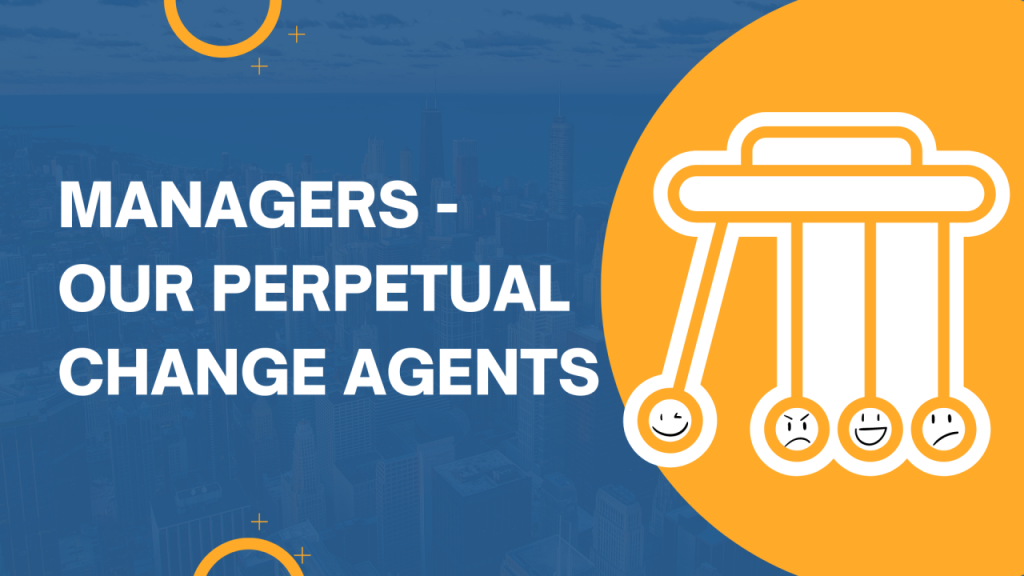
In organizational dynamics, change management is frequently viewed as a situational tool, taken out of the managerial toolbox when the horizon of change looms. While acknowledging the value of change management practices, this perspective inadvertently confines their scope to mere episodic interventions. However, the reality of today’s business environment, characterized by rapid evolution and constant disruption, demands a broader vision.
Change is not an occasional guest in the corporate world; it’s a permanent resident. And so…
change management should not be seen merely as a tool for specific scenarios but as an essential mindset and foundational skill inherent to effective management.
In other words, managers must shift from viewing change management as an ad hoc strategy to integrating it as a core component of their managerial DNA. This paradigm shift transforms the role of a manager from a reactive change implementer to a proactive change leader.
The Manager as a Perpetual Change Agent
Acknowledging every manager as an inherent change agent reinforces the idea that change management is not just about navigating through specific transformations but about fostering an ongoing culture of adaptability and growth. Managers adept in change management…
… proactively seek change: Instead of waiting for external pressures to necessitate change, they continuously scan the environment for opportunities to innovate and improve.
… build resilient teams: By ingraining adaptability as a team value, managers prepare their teams to embrace change as a norm rather than an exception.
… lead by example: Embodying the change management mindset, they inspire their teams through their commitment to personal and organizational growth.
Cultivating a Change Management Mindset
Developing a change management mindset involves a commitment to several key practices:
- Strategic visioning: Looking beyond the immediate to envision future possibilities and aligning team efforts with broader organizational goals.
- Empathy and communication: Understanding and addressing the concerns and motivations of team members to foster an environment where change is embraced.
- Continuous learning: Staying abreast of industry trends, management theories, and organizational behavior to anticipate and lead change effectively.
Shifting from viewing change management as a situational tool to a fundamental managerial skill presents challenges. Resistance may come from entrenched organizational cultures, individual aversions to change, or a lack of time and resources for development. Overcoming these barriers requires patience, persistence, and cultivating a supportive learning environment that values innovation and adaptability.
The necessity of integrating change management as a core managerial competence cannot be overstated in an era marked by perpetual transformation. I’m convinced that managers who embrace change management as a mindset, rather than resorting to it as a situational tool, position themselves and their teams for success in the mid- and long-term.
What’s your view? How have you integrated change management into your everyday managerial approach? How do you work with your team to prepare them for and guide them through today’s VUCA world? I’d love to hear from you!
This is a copy of the same post on my LinkedIn blog. To comment and join the discussion on this topic switch to LinkedIn. Follow me for regular updates and blog articles: https://www.linkedin.com/in/drnilskoenig/
